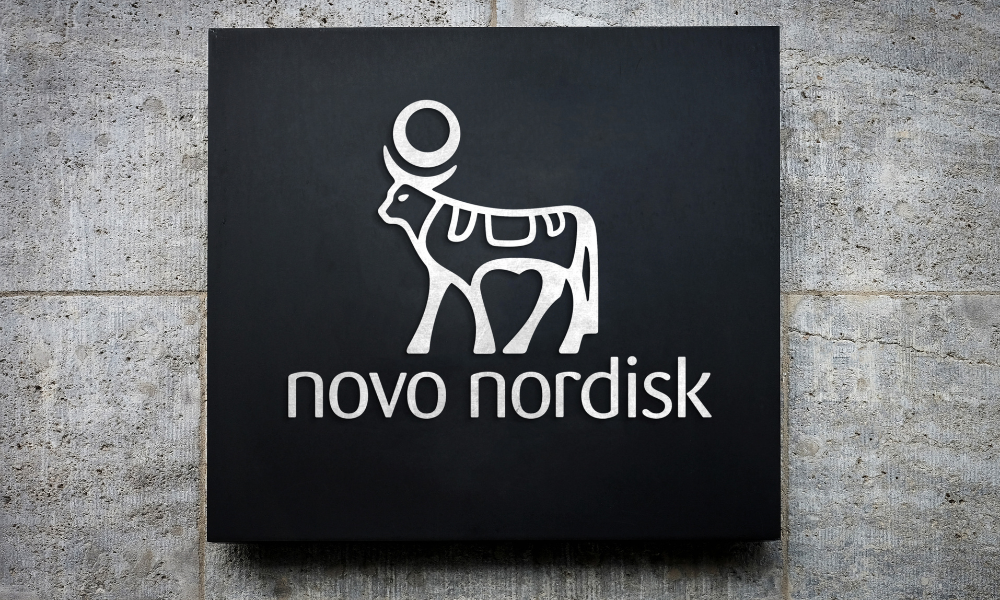GLP-1 rival pressure forces Novo to cut forecasts, end trials

A surge in copycat drugs and pricing pressure in the US market has pushed Novo Nordisk to slash its profit outlook, terminate eight research and development projects, and warn that layoffs may be unavoidable.
According to Al Jazeera, outgoing CEO Lars Fruergaard Jorgensen said “we probably won’t be able to avoid layoffs,” noting adjustments would be necessary in some parts of the business.
He added that final decisions would fall to incoming CEO Maziar Mike Doustdar, who assumes the role Thursday.
The Danish drugmaker—maker of the GLP-1-based obesity drug Wegovy—revised its full-year forecast last week, prompting a 30 percent drop in share price, its worst weekly performance in over two decades.
As reported by Reuters, shares fell a further 3.4 percent on Wednesday, with the total market value drop exceeding US$95bn.
Bloomberg reported that operating profit rose to 33.4bn Danish kroner (US$5.2bn) in the second quarter, missing analyst expectations of 34.4bn kroner.
Total quarterly sales reached 76.86bn kroner, slightly above forecasts.
Wegovy sales alone rose 67 percent year-over-year to US$3.03bn, while sales of injectable diabetes drugs including Ozempic grew 8 percent in the first half—down from 21 percent a year earlier—according to The Guardian.
However, the growing presence of compounded GLP-1 drugs in the US market has posed significant challenges.
Jorgensen told Danish broadcaster DR that the compounded versions are “of equal size to our business” and sold at “a much lower price point.”
He described the US obesity market as volatile, while Finance Chief Karsten Munk Knudsen said more than one million patients continue using compounded GLP-1s despite the US Food and Drug Administration’s May 22 ban on copies of Wegovy, as reported by Reuters.
Knudsen told CNBC that compounding is the “largest single factor” affecting Novo’s US market share, though it also signals “significant demand.”
Novo is pursuing multiple strategies, including lawsuits against compounding pharmacies, and expanding its US direct-to-consumer cash-pay platform, NovoCare, which launched in March and offers Wegovy for US$499 per month—less than half the list price.
The Guardian reported that Jorgensen confirmed the company was “taking measures to sharpen our commercial execution further, and ensure efficiencies in our cost base while continuing to invest in future growth.”
That includes terminating several weight-loss drug candidates, including one that completed a phase II clinical trial.
Bloomberg added that Jorgensen’s ouster in May followed a series of disappointing trial results for Novo’s next-generation obesity treatment, CagriSema.
Analysts have since lowered their price targets and recommendations, with Jefferies noting an unusually large R&D clean-out.
Novo reiterated its annual forecast of 8 to 14 percent sales growth and 10 to 16 percent operating profit growth at constant exchange rates.
Knudsen warned the lower end of the guidance implies second-half sales of US$23bn, down from US$24.5bn the previous year, and would reflect “unforeseen events,” such as steeper-than-expected pricing pressure in the US.
While Wegovy was overtaken earlier this year by rival Eli Lilly’s Zepbound in US prescriptions, Jorgensen said that lead has narrowed in the past month.
Wegovy’s US pricing held steady in the quarter, but Knudsen forecast erosion in the second half due to a shift toward cash-pay sales and higher insurer discounts.
In the broader policy environment, CNBC reported that Knudsen acknowledged US President Donald Trump’s call for most-favoured-nation drug pricing by September 29 “resonated,” and said Novo “shares the same objective” of lowering prescription costs.
The company remains in negotiations on future legislation.
Knudsen also said the company may expand direct-to-patient sales to markets beyond the US.
He stated that Novo’s US manufacturing base leaves it better positioned than peers to withstand potential US pharmaceutical tariffs as high as 250 percent, adding that “we are actually exporting more from the US than we are importing, in terms of volumes.”
Meanwhile, Wegovy’s global growth continues.
According to Al Jazeera, second-quarter sales more than quadrupled outside the US compared to the same period last year.
However, Novo’s standing as Europe’s most valuable company has reversed, with the company losing over US$400bn in market value since its June 2024 peak, as reported by Bloomberg.



